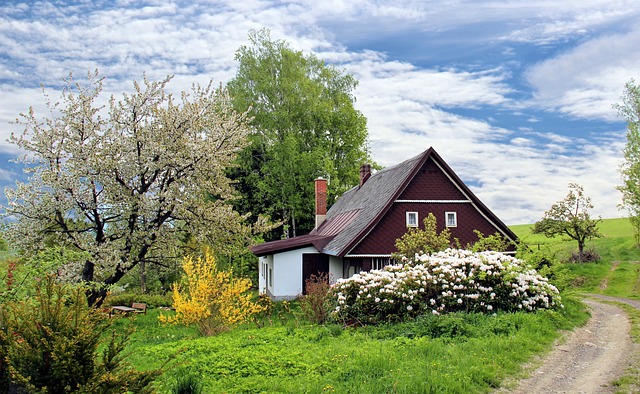House Sitting Solutions: A Trusted Guide for Secure Home Care Services
This guide comprehensively covers the key aspects of becoming a skilled house sitter, emphasizing th…….
Understanding House-Sitting
House-sitting is a mutually beneficial arrangement where a homeowner entrusts their home to a house-sitter in their absence, expecting the sitter to live in the house, look after it, and sometimes care for pets or plants. This practice has been around for centuries, evolving with societal shifts and technological advancements. It serves as an alternative to traditional pet boarding, rental agreements, or empty home maintenance services.
Historically, house-sitting has its roots in informal agreements between neighbors, friends, or travelers. Over time, it has formalized into a recognized service with platforms facilitating connections between homeowners and sitters. The core components of house-sitting include trust, responsibility, and the exchange of accommodation for services. It is significant as it offers cost-effective living solutions for both parties, promotes security for homes, and can provide companionship for pets.
Global Impact and Trends
House-sitting has a global impact, influencing various aspects of travel, home ownership, and lifestyle choices. Key trends shaping its trajectory include the rise of digital nomadism, an aging population seeking to maintain their homes while traveling, and a growing interest in pet care as pets are considered family members.
In North America and Europe, house-sitting is increasingly popular among retirees who wish to travel without the burden of home maintenance or paying for accommodation. In Australia and New Zealand, the concept aligns with a culture of extensive outdoor activities and long-distance travel. In countries like Japan and South Korea, where small living spaces are common, house-sitting can offer a respite from cramped conditions.
Economic Considerations
From an economic perspective, house-sitting affects various market dynamics. It provides homeowners with cost savings on property maintenance and security services. For sitters, it offers affordable living options and opportunities to travel without the expenses of traditional accommodations. In terms of investment patterns, house-sitting can be a strategic component in real estate portfolio diversification, offering non-monetary returns such as occupancy and care during vacancies or between tenants.
In economic systems, house-sitting can reduce the strain on housing markets by providing alternatives to permanent rentals or home ownership. It also creates a niche market for specialized services, including house-sitting platforms, background checks, insurance, and training for sitters.
Technological Advancements
Technology has revolutionized house-sitting through platforms that connect homeowners with vetted sitters. These platforms often offer features like secure messaging, profiles with detailed information about pets and home specifics, and reviews and ratings systems to ensure trustworthiness.
The Internet of Things (IoT) is another significant technological advancement, allowing homeowners to monitor their homes remotely. Smart home devices can alert sitters or homeowners to issues such as water leaks, security breaches, or system malfunctions. The future potential of AI and machine learning could lead to more autonomous homes that require less oversight from sitters.
Policy and Regulation
Policies and regulations governing house-sitting vary widely by region and are subject to ongoing debate. In some places, regulations may require formal agreements, insurance, or specific licensing for professional house-sitters. Legal frameworks often address concerns such as liability, property damage, and tenant rights.
The development of house-sitting is influenced by these policies, which can either facilitate or restrict the practice based on local laws and cultural attitudes towards property ownership and tenant occupancy. As such, understanding the legal landscape is crucial for both homeowners and sitters.
Challenges and Criticisms
House-sitting faces several challenges and criticisms, including concerns over security, liability, and the potential for abuse. Issues such as unclear legal status, lack of standardization, and varying levels of professionalism among sitters can undermine trust in the practice.
To address these issues, stakeholders can advocate for clearer regulations, establish industry standards, and promote best practices. Education for both homeowners and sitters on security measures, insurance options, and legal rights can also enhance the legitimacy and safety of house-sitting arrangements.
Case Studies
Successful house-sitting arrangements often hinge on clear communication, trust, and a shared understanding of responsibilities. A case study might involve a retired couple who travel extensively, using house-sitting to maintain their home while caring for their pets. Another example could be a young professional who uses house-sitting as an affordable living solution while working remotely in different cities. These real-life scenarios highlight the practical benefits and challenges of house-sitting.
Future Prospects
The future outlook for house-sitting is promising, with potential growth areas including expanded services for homeowners, such as comprehensive property management, and professional development programs for sitters. Emerging trends may see increased integration with travel and lifestyle industries, offering combined packages for travelers who wish to house-sit globally. Strategic considerations for the future include adapting to changing demographics, embracing new technologies, and navigating evolving legal landscapes.
Conclusion
House-sitting is a multifaceted practice that offers significant benefits in terms of cost savings, security, and companionship for pets. It has a global impact, influenced by economic factors, technological advancements, and policy changes. As it continues to evolve, house-sitting will likely play an increasingly important role in the way we think about home ownership, travel, and lifestyle choices.
FAQ Section
Is house-sitting legal everywhere?
How do I find a reputable house-sitter?
What should be included in a house-sitting agreement?
Can I get insurance for my home while it’s being house-sat?
Is house-sitting suitable for long-term arrangements?
How do I handle disputes between homeowners and house-sitters?

This guide comprehensively covers the key aspects of becoming a skilled house sitter, emphasizing th…….

House sitting is a multifaceted role that goes beyond mere maintenance, serving as a form of stewar…….

Homeowners who plan prolonged absences should secure a trustworthy house sitter to maintain their pr…….

House sitting services offer a reliable and comprehensive solution for pet owners who need someone …….

House sitting is a crucial service within professional home care, offering continuity of support fo…….

House sitting services have emerged as a critical solution for professionals who frequently travel f…….

House sitting is a vital service within home care that enables seniors and individuals with mobility…….

The demand for professional property managers and house sitters is on the rise, reflecting a growing…….

House sitting has become an integral service in the home ownership sector, addressing the growing n…….

House sitting services provide a professional and specialized alternative to casual arrangements fo…….